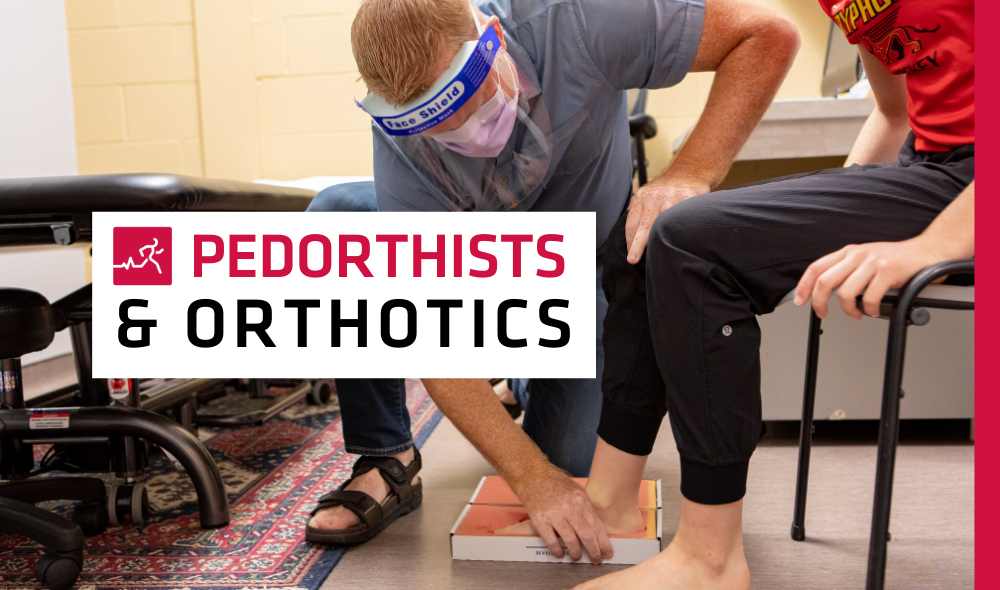Pedorthist & Orthotics Guelph | Health & Performance Centre

Certified Pedorthists & Custom-Made Orthotics
Thank you for voting the HPC as the best Orthotic Services (Reader's Choice Diamond) & Foot Care Clinic (Reader's Choice Gold) in Guelph for 2022.
Our Certified Pedorthists help our clients by completing a comprehensive gait analysis to assess and treat biomechanical conditions of the feet and legs. By analyzing the motion of the foot during walking, underlying biomechanical problems of the feet can be identified, and the foot can be placed into correct footwear and/or shoe inserts (orthotics) to avoid future injury. From there, a fitting is completed to start the process of hand-made custom orthotics. Our Certified Pedorthists also provides running shoe consultations. HPC is the Official Sports Medicine Clinic to the Guelph Gryphons, our Certified Pedorthists work with a variety of Gryphon teams and athletes.
Pedorthists & Orthotics FAQ
-
Comprehensive foot assessments
-
Custom foot orthotics
-
Modifications to orthotics
-
Footwear modifications
-
Orthopaedic footwear fitting
-
Off-the-shelf orthotics (non-custom)
-
Custom toe spacers
-
Bunion splints
-
Plantar Fasciitis Splints
-
How often are you on your feet?
-
What types of shoes are you wearing (heels, safety shoes etc.)
-
When did you first notice foot pain symptoms?
-
What makes your pain or discomfort symptoms worse, and what makes them better?
We may also refer you back to our physician and recommend traditional imaging of your feet (X-ray, bone scan, or MRI) which can help identify areas of arthritis, damage, or injury.
A Pedorthist will suggest treatment recommendations, including to potentially prescribe orthotics using these diagnostic methods.
Orthotics can be part of a comprehensive treatment plan to address various symptoms, usually having to do with pain and discomfort of the feet and legs.
Goals for orthotic treatment may include:
- correcting foot deformities
- helping the foot or ankle function better
- providing support to the ankle
- reducing the risks for further injuries
Your doctor may recommend an orthotic insert if other treatments haven’t proven effective.
Soft orthotics, or "accommodative orthotics," are made from soft compression materials. They provide cushioning to take the pressure off uncomfortable or sore spots from conditions such as Rheumatoid Arthritis or diabetic foot ulcers. Because of their bulk, you might need to wear soft orthotics with prescription footwear.
We also provide foot care to athletes. Ask about our special orthotics designed for sporting equipment such as ski boots, running shoes, and skates.
-
shin splints
-
knee & back pain
-
plantar fasciitis
-
general aches and pain from prolonged standing or movement in the foot, hips, back and legs
-
diabetes-related foot problems
-
arthritis in the feet
-
flat feet
-
high arches
-
foot deformities like bunions
-
bursitis
Are you a University of Guelph employee or student? Visit our benefits pages to see if you may be covered.